1. The Founding Fathers Wanted a Christian Nation

We often hear that the United States was founded as a Christian nation, but the reality is a lot more nuanced. While many of the Founding Fathers had religious beliefs, they were also deeply committed to separating church from state, Dr. Michael Kryzanek of Bridgewater State University explains. The Constitution never mentions Christianity, and the Treaty of Tripoli explicitly states that the U.S. government is “not, in any sense, founded on the Christian religion.” That’s not anti-religion—it’s just pro-pluralism.
This myth sticks because it gives a certain sense of cultural continuity, especially in political rhetoric. But the founders were influenced heavily by Enlightenment ideals, not just the Bible. They were building a framework for diverse beliefs to coexist, not for one to dominate. It’s more historically accurate—and frankly, more impressive—that they chose such a secular structure.
2. The U.S. Has the Best Healthcare in the World

It’s a point of pride for many Americans, but the facts don’t support the claim. The U.S. spends more per capita on healthcare than any other country, yet ranks poorly in metrics like life expectancy, infant mortality, and preventable hospitalizations. High costs don’t equal high outcomes. Many developed countries achieve better results with far less financial burden on their citizens.
This myth hangs around because we have cutting-edge technology and some of the best doctors and hospitals—if you can afford them. But access is unequal, and millions are uninsured or underinsured. Emergency room visits for basic care shouldn’t be normal. That’s not a “best in the world” system by any objective measure.
3. Hard Work Always Guarantees Success
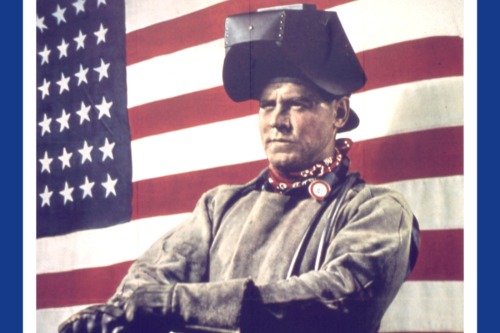
This is the heart of the American Dream: pull yourself up by your bootstraps, and you’ll make it. But the data shows that social mobility in the U.S. has declined, and wealth inequality is at historic highs. Many people work full-time (or more) and still struggle to afford housing, healthcare, and childcare. Hard work matters—but so do systemic factors like race, education access, and generational wealth.
We cling to this myth because it feels hopeful and empowering. But it also puts blame on individuals who “fail” rather than examining broader structural issues. It’s easier to say “work harder” than “fix the system.” Acknowledging this doesn’t mean giving up on ambition; it just means being honest about the playing field.
4. America is the Most Free Country

Freedom is central to American identity, but it’s not as exclusive or unparalleled as we like to think. Countries like Canada, New Zealand, and several European nations often rank higher on global freedom indices, especially in terms of press freedom, personal safety, and political transparency, according to Axios. The U.S. also has one of the highest incarceration rates in the world. Not exactly a beacon of liberty for all.
This myth persists because freedom means different things to different people. We have strong free speech protections and a cultural reverence for independence. But freedom also includes the ability to access healthcare, education, and a fair justice system. Other countries are proving that liberty and social support aren’t mutually exclusive.
5. The U.S. is a Pure Democracy
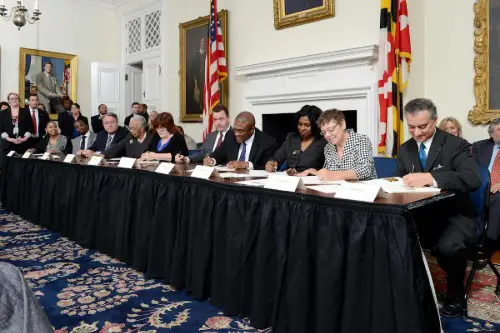
Actually, the U.S. is a constitutional republic with democratic elements. That means not every vote counts equally, especially in systems like the Electoral College or Senate representation. A voter in Wyoming has far more influence per capita than a voter in California. That’s not one person, one vote—that’s a compromise from the 18th century.
We tell ourselves we’re a democracy to simplify a very complex system. But understanding the actual structure is key to improving it. If we want to make the system more democratic, we need to acknowledge where it falls short. Pretending it’s already perfect just keeps us stuck.
6. The Civil War Wasn’t Just About Slavery
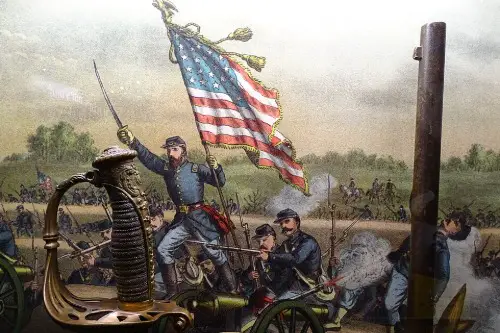
This one lingers in school curriculums and casual conversations alike. But nearly every Confederate state’s secession declaration directly mentions slavery as a central reason. “States’ rights” was a euphemism—those rights were about maintaining slavery. The historical record is incredibly clear.
So why does this myth persist? It’s uncomfortable to admit that such a foundational conflict was about something so morally wrong. Some people try to soften history to make regional pride more palatable. But the truth is crucial for understanding the legacy of racism today.
7. More Guns Make Us Safer

It sounds intuitive: good guys with guns stop bad guys with guns. But evidence shows that more guns often lead to more gun violence, not less. The U.S. has more guns per capita than any other country and also has a far higher rate of gun-related deaths. Defensive gun use does happen, but it’s not nearly as common as gun-related accidents or suicides.
People hang onto this belief because it ties into a sense of empowerment and self-defense. It’s part of a broader narrative about individualism. But personal safety isn’t just about being armed—it’s about creating a society where threats are less likely in the first place. That means smarter policies, not just more weapons.
8. Trickle-Down Economics Works
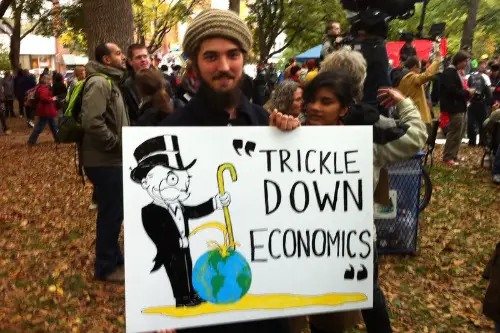
We’ve been told for decades that tax cuts for the wealthy and corporations will benefit everyone. But history shows that this approach often leads to increased inequality and stagnant wages for the middle and working classes. Wealth doesn’t “trickle down”—it tends to stay at the top. Supply-side economics has largely failed to deliver on its promises.
So why is it still around? Because it’s politically convenient and easy to sell to people who hope they’ll be rich someday. It also aligns with corporate interests that fund a lot of political messaging. But economic policies should be judged by outcomes, not intentions.
9. America Is a Post-Racial Society
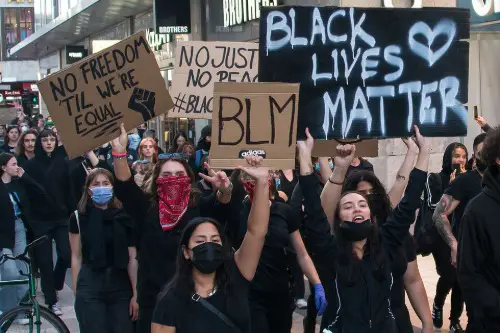
Some folks believed that electing a Black president meant racism was over. But disparities in wealth, policing, healthcare, education, and housing tell a different story. Hate crimes have risen in recent years, and structural racism is deeply embedded in many systems. Being colorblind isn’t the same as being just.
This myth survives because it’s more comfortable than confronting racism head-on. It allows people to deny responsibility for addressing inequality. But pretending race doesn’t matter doesn’t make it true. A post-racial society isn’t achieved by wishful thinking.
10. Immigrants Are Draining the System
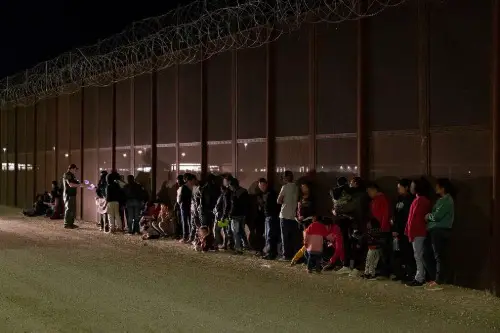
Despite political rhetoric, immigrants contribute more in taxes than they take in services. Undocumented immigrants aren’t eligible for most federal benefits, and many pay into Social Security without ever collecting it. Immigrants start businesses at higher rates than native-born citizens. The economy actually benefits from immigration.
This myth is fueled by fear and misinformation. It’s easier to blame “outsiders” than to confront internal problems. But the numbers consistently show immigration is a net positive. If anything, we should be fixing the system to better harness that potential.
11. The American Military Always Spreads Freedom

The idea that every military intervention is about liberating people is a comforting narrative. But history shows that many U.S. actions abroad have been about protecting strategic or economic interests. From Vietnam to Iraq, the results have often been instability and unintended consequences. The real-world outcomes rarely match the lofty ideals.
This myth endures because it reinforces a heroic self-image. It’s hard to accept that good intentions don’t guarantee good results. But true leadership means learning from mistakes, not repeating them. A strong military should also mean strong accountability.
12. The Suburbs Are the American Ideal

Suburbs have long been portrayed as the dream—safe, clean, and full of opportunity. But they were built on zoning laws and housing policies that excluded minorities and concentrated wealth. They also contribute heavily to urban sprawl, environmental degradation, and social isolation. The “ideal” has real costs.
This belief sticks because it was marketed so well during the post-war era. But not everyone benefits equally from suburban life. Cities and dense communities can offer more affordability, diversity, and sustainability. It’s time to rethink what the American Dream really looks like.
13. The U.S. Has the Best Education System

American universities are top-tier, but the K-12 system lags behind many developed countries in math, reading, and science. Public school funding is wildly unequal due to reliance on local property taxes. Teacher burnout is high, and test-focused policies haven’t closed achievement gaps. Education is not a level playing field here.
We like this myth because it reinforces national pride and ambition. But ignoring the problems just keeps them in place. Kids in underfunded districts deserve better than slogans. Real reform means admitting where we’ve fallen short.
14. Climate Change Isn’t That Urgent

Despite overwhelming scientific consensus, many Americans still think climate change is a distant or debatable issue. But we’re already seeing its effects—wildfires, floods, rising sea levels, and extreme weather are here now. Delaying action only makes the problem more expensive and harder to solve. It’s not a future problem—it’s a now problem.
This myth persists because fossil fuel interests have spent decades spreading doubt. It’s also psychologically easier to kick the can down the road. But nature doesn’t wait for politics. Denial is no longer a luxury we can afford.
15. American Exceptionalism Is a Given

The idea that America is inherently better than other countries is deeply ingrained. But no nation is automatically exceptional—greatness comes from actions, not assumptions. Exceptionalism can blind us to our flaws and prevent meaningful progress. It can also alienate allies who see us acting arrogantly rather than cooperatively.
This myth lives on because it feels patriotic. But real patriotism means wanting to improve, not pretending we’re perfect. We should lead by example, not by ego. Humility, not hubris, is what makes a country truly great.
This post 15 Myths America Clings to Even Though We All Know Better was first published on American Charm.


